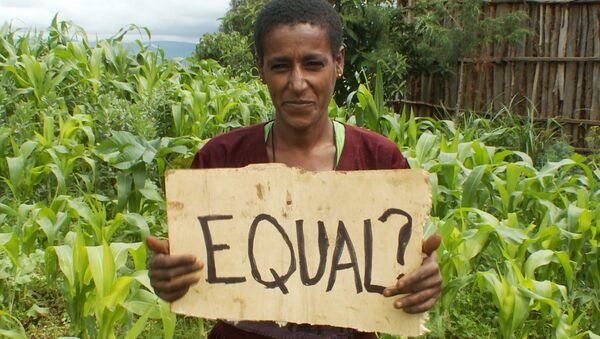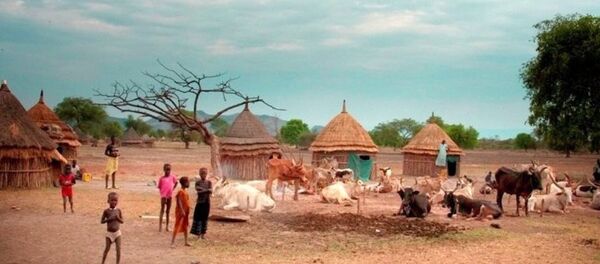Professor Philip Alston, the UN special rapporteur on extreme poverty and human rights, accused the organization of merely giving lip service to human rights, and called for officials to realize that the issue was inseparable with development financing in the modern age.
"The bank has for a long time played a double game where a lot of the publicity suggests that they are engaging intensively with human rights."
"You'll find many references on their websites. They have conferences every year where there are lots of panels on human rights and so on," he said.
Alston: @WorldBank approach to human rights disingenuous, outdated and “deeply troubling" https://t.co/7cxpFVtMyg pic.twitter.com/p5vJb7Oiad
— Iain Levine (@iainlevine) October 22, 2015
"But the reality is the exact opposite. They can talk about these issues but when it comes to country programing and the advice and so on that they give — which is their core mission — they won't touch human rights."
Long History of Criticism
The World Bank, which works in many developing countries, has long been accused of neglecting the impacts its various programs have had on affected countries.
More than 37,000 households relocated in Ethiopia — govt says it was voluntary, but residents tell a different story http://t.co/1ERiatDPyD
— ICIJ (@ICIJorg) January 23, 2015
A major scandal erupted in January when a leaked World Bank report found that a joint UK government-WB funded program might have contributed to the violent resettlement of an ethnic minority group in Ethiopia.
— DRI (@NYU_DRI) April 16, 2015
The Villagization Crisis in Ethiopia |Thousands of indigenous Ethiopians face forced evictions http://t.co/JTpK6OUA98 pic.twitter.com/uiXmGmqOQB
— Young Ethios 4 Peace (@The_BlackLions) August 8, 2014
According to the draft report from the World Bank's internal watchdog, the combination of bad audit practices, a lack of oversight and a failure to follow its own code of conduct meant that operational links formed between the WB program and the Ethiopian government's highly controversial resettlement policy, known as 'villagization'.
Human rights campaigners slammed the Ethiopian government over the program, accusing officials of violently removing tens of thousands of people from their indigenous lands to make way for large-scale commercial agriculture projects.
The Ethiopian government has denied such claims.
WB's Approach 'Incoherent, Counterproductive and Unsustainable'
Following such allegations, Alston released a report labeling the World Bank's overall attitude towards human rights as "incoherent, counterproductive and unsustainable", saying that such policies and programs undertaken by the bank treated human rights "more like an infectious disease than universal values and obligations."
Alston noted that the World Bank could use the arrival of two similar international institutions — the Asian Infrastructure Investment Bank and the New Development Bank — to help boost its attention to human rights concerns.
"The irony in fact is that what those other banks seem to be doing so far is simply replicating the World Bank's very low standards.
"It's the World Bank that has led the race to the bottom rather than the other two. [Yet human rights] could be its strength."
Following the release of Mr Alston's report, which contained more blunt language rather than normal diplomatic reasoning, the World Bank hit back, with a spokesperson saying the UN investigator presented "a distorted picture" of the bank's work.
"Human rights principles are essential for sustainable development and are consistently applied in our work to end poverty and boost shared prosperity. For decades, the World Bank has argued that human rights and development are mutually reinforcing."



